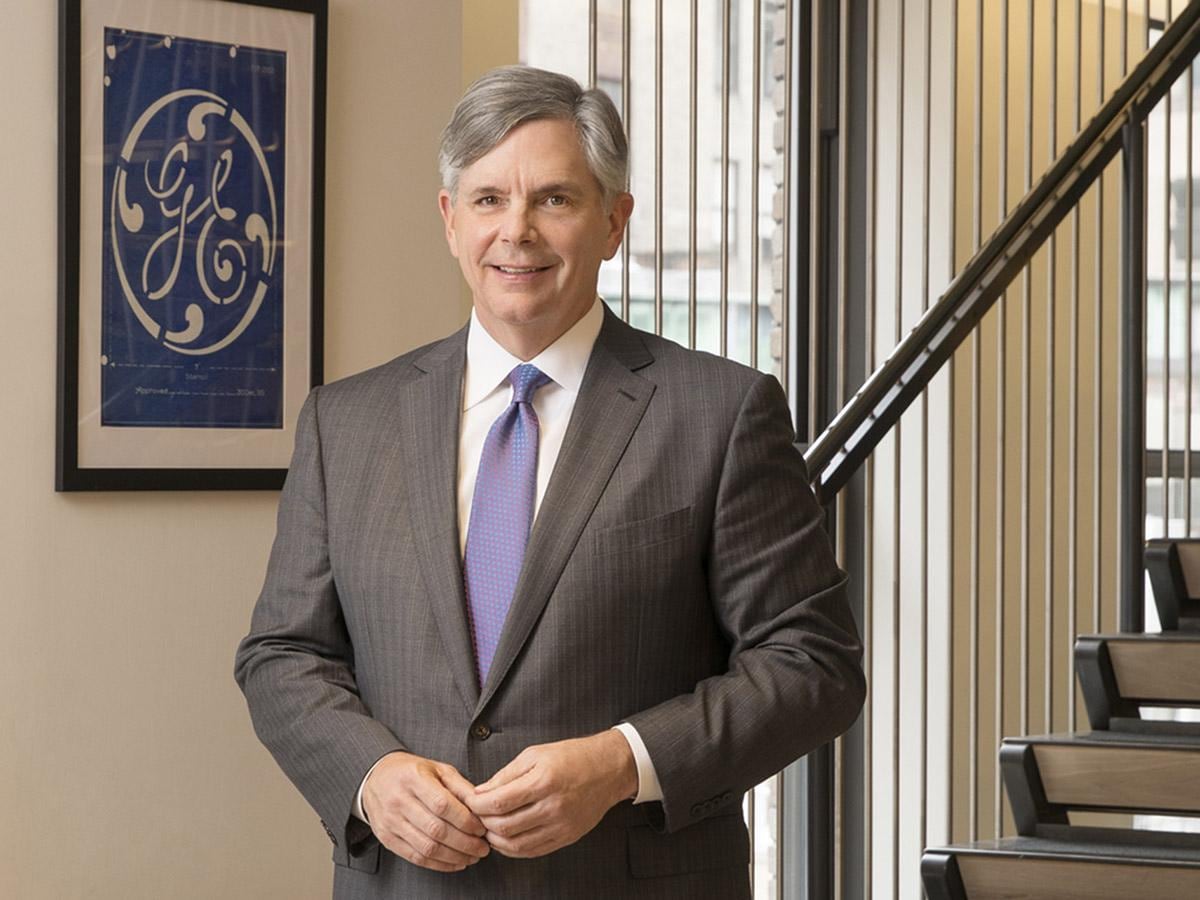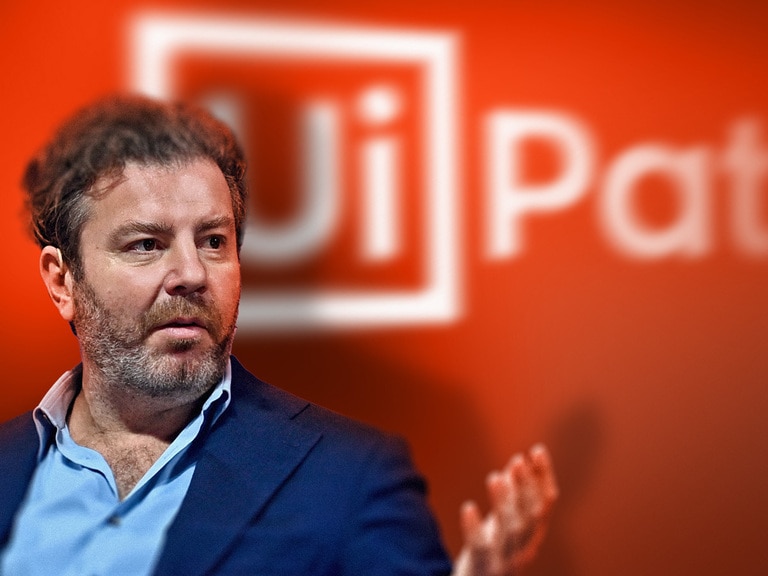Two months after Larry Culp became CEO of General Electric [GE] in October last year, the company’s stock bottomed out, embarking on a downward trend to settle at just $6.50 a share – a nine-year low.
>>> In London? Join us for a special event, Normal doesn’t make money <<<
But as Culp’s influence has taken hold, the company has stabilised its freefall and is now showing signs of growth. GE’s third-quarter results reported $650m in free cash flow, raising its total 2019 figure to $2bn – up from the negative $1bn it estimated six months earlier. Meanwhile, its adjusted earnings of $0.15 a share are more than the $0.12 analysts expected. Its aviation unit, one of GE’s key businesses, was up 8% year-on-year.
$650million
GE's Q3 free cash flow
It’s not time to relax, though. While the Boeing [BA] 737 MAX, which GE supplies engines for, remains grounded following two fatal crashes, it is costing the company $400m a quarter. Meanwhile, a slump in interest rates risk GE’s pension and insurance liabilities ballooning. But, these small factors appear not to have dampened spirits. “This is a good start,” said Culp in a recent GE newsletter. “I’m more optimistic than I was a year ago.”
Maverick management
H. Lawrence “Larry” Culp Jr’s appointment was a bold choice, as the first outsider to run this most complex of companies in General Electric’s 127-year history. He doesn’t have the flamboyance of a former leader “Neutron Jack” Welch, who famously cut all GE’s businesses where it wasn’t first or second in the market. But Culp does appear more decisive than the man he replaced, John Flannery, whose brief 14-month tenure was ended summarily by a board frustrated at the slow pace of change.
The choice to put Culp at the helm of GE was almost as much of a shock as Flannery’s abrupt dismissal. However, this is not due to unimpressive credentials. During his 12-year reign at Danaher - the Washington DC-headquartered Fortune 500 science and technology conglomerate - Culp was able to provide investors with a 400% increase on the value of their investments, according to Forbes.
In the short time he has been at GE it certainly appears that Culp is following more closely in Welch’s footsteps. He moved fast to reduce the $55bn of debt that GE ended 2018 with, and has been quick to ditch parts of the business that don’t show “strong promise”. Notably, earlier this year he sold GE’s biopharma business to his former employer Danaher for $21.4bn. In September he followed up by announcing the sale of 105 million shares in GE subsidiary Baker Hughes.
Not everyone will be a fan – he’s also slashed the company’s 119-year-old dividend from 12 cents to a penny, and frozen GE’s US pension plan for about 20,000 workers to reduce the company’s pension deficit by up to $8bn. But Culp has boosted analyst confidence by forewarning the markets, instead of giving them any nasty surprises.
“He was dealt a pretty difficult hand,” according to Andrew Obin, analyst at Bank of America Merrill Lynch. “I’m not sure he could have done any better – there’s no magic wand.”
Nicole DeBlase, analyst at Deutsche Bank [DB], agreed: “He’s handled things as well as he could. There haven’t been any big missteps.”
“I’m not sure he could have done any better – there’s no magic wand” - Merrill Lynch analyst Andrew Obin
Time to buy?
It may still be worth waiting to see how GE’s share price movements play out. The company currently has eight Wall Street analysts out of 20 holding a buy rating on the stock, while 10 recommend hold and two sell. However, the current consensus price target of $10.35 would represent a 9.4% drop on its price of $11.42 (as of 12 November).
| Market cap | $99.737bn |
| EPS (TTM) | -0.62 |
| Operating Margin (TTM) | 5.86% |
| Quarterly Revenue Growth (YoY) | -0.10% |
GE share price vitals, Yahoo Finance, 13 November 2019
Culp has just seen out the first year of a long-term turnaround process. While the jury applauds his efforts so far, it’s very much out on whether this can be sustained.
Bulls will point to his sharp, tangible, positive results, and that healthcare is a good business. Aviation, once Boeing is in the air again, will be too.
On the other hand, GE Power and GE Capital need a much bigger fix. The company’s debt remains four times as big as its equity and bears will maintain that in the grand scheme of things, GE had little value a year ago and essentially not much has changed.
“There was no smoking gun (in the third-quarter results) though the underlying details show a situation far from low risk” JPMorgan analyst Stephen Tusa notes.
“There was no smoking gun (in the third-quarter results) though the underlying details show a situation far from low risk” - JPMorgan analyst Stephen Tusa
In addition, for all the optimism, GE’s recovery is still considered by many fragile enough to be torpedoed by a recession, low-interest rates, a manufacturing downturn or the US-China trade war.
Disclaimer Past performance is not a reliable indicator of future results.
CMC Markets is an execution-only service provider. The material (whether or not it states any opinions) is for general information purposes only, and does not take into account your personal circumstances or objectives. Nothing in this material is (or should be considered to be) financial, investment or other advice on which reliance should be placed. No opinion given in the material constitutes a recommendation by CMC Markets or the author that any particular investment, security, transaction or investment strategy is suitable for any specific person.
The material has not been prepared in accordance with legal requirements designed to promote the independence of investment research. Although we are not specifically prevented from dealing before providing this material, we do not seek to take advantage of the material prior to its dissemination.
CMC Markets does not endorse or offer opinion on the trading strategies used by the author. Their trading strategies do not guarantee any return and CMC Markets shall not be held responsible for any loss that you may incur, either directly or indirectly, arising from any investment based on any information contained herein.
*Tax treatment depends on individual circumstances and can change or may differ in a jurisdiction other than the UK.
Continue reading for FREE
- Includes free newsletter updates, unsubscribe anytime. Privacy policy





